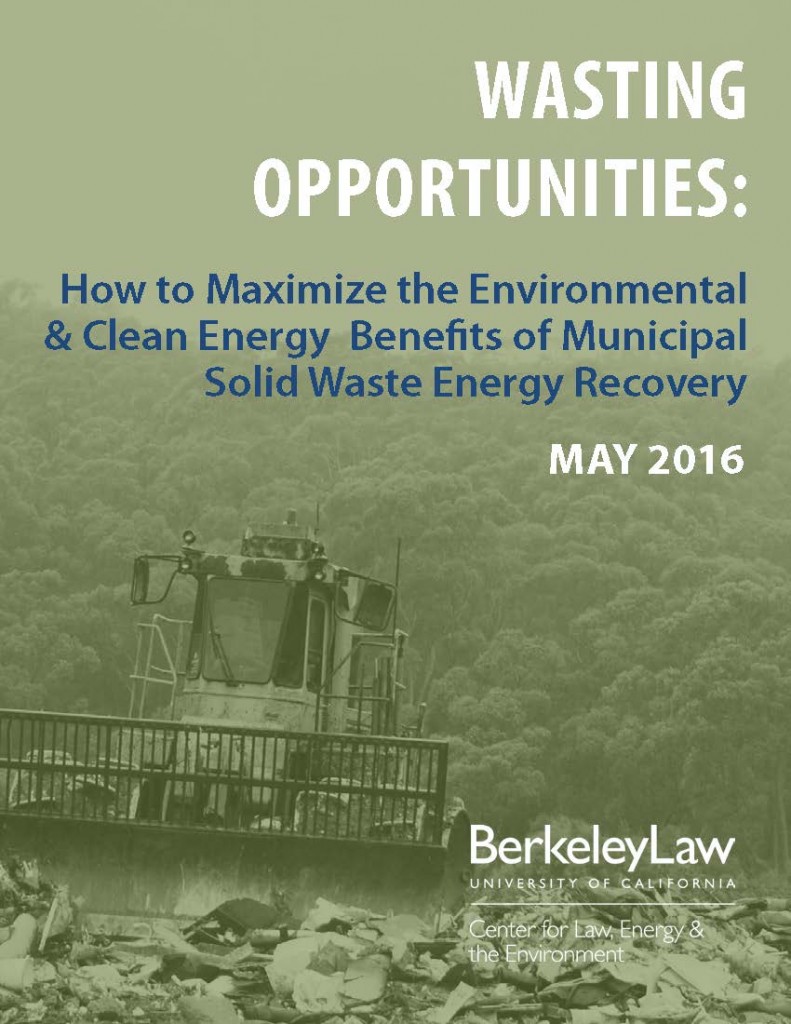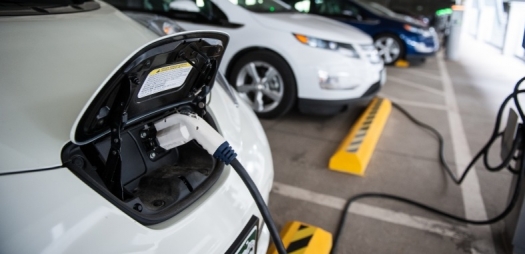On the anniversary today, I was struck by the voice message from Brian Sweeney to his wife Julie, recorded just a few minutes before his plane hit one of the towers:

What do you do when you know you’re about to die? It’s not just a question for people in terrible situations, as Brian found himself that morning. It’s a question any of us could grapple with at any time in our lives — and probably should.
As Katy Butler wrote in the San Francisco Chronicle in an op-ed earlier this year on preparing for the end of life, “[h]ospice nurses often list five emotional tasks for the end of life: thank you, I love you, please forgive me, I forgive you, and goodbye.”
Brian amazingly took care of about three of those tasks in his last message to Julie, who has since remarried and had two children.
Butler goes on to observe the following, a lesson that 9/11 and people like Brian can also teach us:
Over the years, I’ve learned one thing: Those who contemplate their aging, vulnerability and mortality often live better lives and experience better deaths than those who don’t.
A tragedy like 9/11 gives us an opportunity to reflect not just on death, but on how we want to live our lives while we have them. It’s part of the legacy we can draw from 9/11; a lesson to learn.
I’ll be hosting two radio shows on KALW 91.7 FM today. First, at 10am I’ll be guest-hosting Your Call’s One Planet series, focusing for the first half hour on the threat that sea level rise poses to California’s coastal cities and town.
Joining me will be Los Angeles Times environment reporter Rosanna Xia, who penned a fascinating piece recently on how climate-induced changes in ocean levels has already started affecting California communities.
For the second half hour, we’ll discuss the Trump Administration’s proposed rollbacks to the federal Endangered Species Act, a law that protects over 1,600 plant and animal species in this country. We’ll be joined by Rebecca Riley, Legal Director for the Nature Program at the Natural Resources Defense Council (NRDC).
Tune in at 10am on 91.7 in the San Francisco Bay Area or stream it live. We’d love to hear your questions or comments. You can call in at 866-798-TALK, or e-mail yourcall@kalw.org, or tweet us @yourcallradio. You can also post your comments and questions on our website @yourcallradio.org.
Then at 7pm tonight, I’ll be hosting City Visions, discussing the crush of student loan debt and what we can do about it. I’ll be joined by:
- Jacob Dumez, Manager of Policy and Partners in San Francisco’s Office of Financial Empowerment which co-authored an April 2019 study on Bay Area student loan debt.
- Juliana Fredman, a consumer protection attorney with Bay Area Legal Aid who works directly with low-income clients through the Legal Aid’s clinic.
- Suzanne Martindale, Senior Policy Counsel & Western States Legislative Manager for Consumer Reports.
Tune in at 7pm or stream live. We’d love to get your questions and comments. You can call us at 866-798-TALK or can e-mail or text us at cityvisions@kalw.org. You can also reach us by tweeting us at @cityvisionskalw.
Hope you can tune in to these two shows today!

On this morning’s 10am edition of Your Call’s Media Roundtable, I’ll be hosting a discussion of the coverage of the recent presidential elections in Guatemala. Alejandro Giammattei, a right-wing former prison chief, won the election with nearly 60% of the vote, with implications for immigration to the U.S. from that country.
We’ll also talk about the impacts of a new federal regulation that would make it easier for the U.S. government to deny entry or green cards to immigrants based on their use of social services. Guests include:
- Sandra Cuffe, freelance journalist based in Guatemala
- Arthur Delaney, reporter with the HuffPost covering politics and the economy
- Obed Manuel, reporter for the Dallas Morning News covering immigration and Latino issues
You can stream it live at 10am today or listen to 91.7 FM in San Francisco. Call 866-798-TALK with questions or comments!

Nowhere in the country is childcare more expensive than in San Francisco. Parents can spend nearly $2,000 a month per child for full-time care, if a spot is even available for the child, which is often not the case.
How are families coping with the rising cost of childcare in a region that is already so expensive? What resources are available for families in need? We’ll discuss on City Visions tonight, with guests:
- Graham Dobson, Senior Analyst with the San Francisco Department on Early Childhood Education;
- Gina Fromer, Executive Director of Children’s Council;
- Kim Kruckel, Executive Director of the Childcare Law Center; and,
- Phil Ginsburg, General Manager of the SF Recreation and Park Center
Tune in at 7pm at 91.7 FM in the San Francisco Bay Area or stream live. We welcome your calls or emailed questions for the panelists.
Berkeley/UCLA Law report discusses policy solutions to boost energy retrofits. Free webinar tomorrow (Thursday), June 20th at 10am features expert panel to discuss top findings.
As California moves aggressively to reduce greenhouse gas emissions from buildings, will the state leave behind its low-income residents? Many of these residents — 40% of the state’s population — live in multifamily housing units and apartments, where they have limited access to in-home retrofits that could save them on their energy bills and reduce overall emissions. These retrofits require upfront capital that low-income tenants may lack, as well as approval and awareness by landlords who may be unwilling or unable to support them.

To identify ways to help solve this thorny problem, UC Berkeley School of Law’s Center for Law, Energy & the Environment (CLEE) and UCLA School of Law’s Emmett Institute on Climate Change and the Environment are today releasing a new report, Low Income, High Efficiency. The report offers policy solutions to increase access to energy efficiency incentives and unlock environmental, financial, and quality-of-life benefits for owners and residents alike, including:
- Creating a single, statewide “one-stop shop” efficiency program administrator to comprehensively manage incentives and offer users a single point of access.
- Expanding innovative financing mechanisms such as “pay as you save” and third-party “energy budget” arrangements that take advantage of residents’ utility bills and private capital.
- Creating a comprehensive database to help prioritize retrofit projects and support energy data benchmarking and analysis efforts.
The report also contains numerous additional solutions for policy makers to consider, as well as five case studies focusing on California low-income multifamily properties that recently undertook efficiency projects, in order to yield valuable lessons learned. The findings resulted from two stakeholder convenings with experts across state energy agencies, local governments, housing owner/developers, environmental and housing advocates, and efficiency program implementers and contractors.
California has committed to reducing greenhouse gas emissions 40 percent below 1990 levels by 2030 and doubling the energy efficiency of buildings by that year, but the state will need significant improvements in the energy performance of existing buildings to achieve these goals. While the state has adopted aggressive standards for efficiency in new construction, owners and residents of existing low-income multifamily buildings face a particularly daunting set of barriers, including limited access to capital, complex financing arrangements and restrictions, and competing renovation needs. Low Income, High Efficiency offers a suite of policy innovations and proposals to address these challenges.
To discuss the report’s findings, CLEE and the Emmett Institute will host a free webinar on Thursday, June 20 (tomorrow) at 10am with an expert panel, including:
- California Energy Commissioner Andrew McAllister
- Peter Armstrong of Wakeland Housing
- Martha Campbell of the Rocky Mountain Institute
Building anything in California near transit stops is hard enough, but many affordable housing advocates argue that we should only build subsidized homes for low-income residents — and not market-rate homes for higher-income people. They cite evidence that low-income people are much more likely to actually ride the transit where they’ll live, as opposed to high-income people who will still drive.
It’s true that we should build as much affordable housing (and offices) near transit as we can to boost ridership. But we should also allow market-rate development near transit, too, for similar environmental reasons.
Yes, high-income people near transit probably won’t actually use the transit that much. But they will on balance drive significantly fewer miles than if they lived in sprawl areas. And fewer driving miles means less pollution and fewer greenhouse gas emissions.
Ironically, the evidence for this environmental benefit comes from a study meant to document how important it is for low-income residents to live near transit. The nonprofits TransForm and California Housing Partnership Corporation released a study [PDF] in May 2014, based on Caltrans’ California Household Travel Survey (CHTS), arguing explicitly for affordable housing near transit. In fact, they used the data to argue against locating higher-income housing near transit, pointing out that higher-income households drive more than twice as many miles and own more than twice as many vehicles as low-income households living within 1/4 mile of frequent transit.
But the data actually revealed something more important: higher-income residents near transit drove almost 30 miles fewer per day than similarly situated people in sprawl areas. By comparison, low-income residents only drove about 20 miles fewer per day, compared to similar income sprawl residents. Check out this chart that summarizes those results:

So while I agree we want to locate low-income residents near transit, we also need high-income people living in cities near transit. Otherwise, the increased driving miles will mean more traffic, pollution and unattainable climate goals.
I’ll be discussing SB 50 (Wiener) on KQED Radio’s Forum this morning from 9am. The bill heads to its final committee hearing this Thursday before a full vote in the California State Senate.
As I’ve written before, SB 50 is the state’s first and only major attempt at comprehensive “upzoning” (relaxing local restrictions on housing) near transit and jobs. It also recently added a provision to legalize the conversion of single-family homes into duplexes, triplexes or fourplexes anywhere in the state.
Tune in at 88.5 FM in the San Francisco Bay Area and weigh in with your questions. Even if you don’t live in the Bay Area, you can stream it live and call in or email with questions.
Los Angeles mayor Eric Garcetti made headlines recently by unveiling the city’s version of a “Green New Deal,” complete with ambitious goals to create a zero-emission transportation network, a zero-carbon electricity grid, and a Los Angeles that “won’t send a single piece of trash” to the landfill by 2050.
The goals in the new sustainability plan [PDF] are necessary to meet our environmental and sustainability needs, but how can the city make them feasible to achieve?

I discussed the zero-waste goal in particular on KPCC radio’s AirTalk program, along with my UCLA Law colleague Cara Horowitz. My comments were drawn largely from the 2016 CLEE report “Wasting Opportunities” on boosting energy recovery from municipal solid waste to meet climate goals.
The bottom line? Achieving zero waste will require significant reduction of materials in use, increases in recycling and composting, and — yes — some type of energy recovery from whatever is left over. You can listen to the broadcast here.
As other developed countries race ahead to build high speed rail networks, the U.S. is lagging painfully behind. The result here is now sprawling cities, crushing traffic, significant air pollution, and increased transportation expenses for Americans. But why are the outcomes so different in the U.S. than in the rest of the world?
CNBC produced an in-depth report (video above) to examine some of the reasons, based on interviews with me and UC Berkeley colleague and transportation scholar Robert Cervero, among others. The piece contains some classic 1950s corporate advertisements extolling the virtues of freeways and buses and some good coverage of the various lobbies keeping our infrastructure auto-dependent.
My only quibble is that the piece repeats the false notion that city rail networks in the U.S. were systematically dismantled as a conspiracy by auto interests. The actual picture, as I detail in my book Railtown on the history of the Los Angeles Metro Rail, is much more complicated than that: it points to voter disillusionment with rail networks, coupled with rapid consumer adoption of (and preference for) private automobiles back in those early days, as the main culprit.
Still, the report does a good job presenting the difficulties funding and building high speed rail in the U.S., and it ably describes what would need to happen if the U.S. were to commit to joining the rest of the developed world by building a first-class high speed rail network.

Policy makers and industry leaders have a tough challenge making electric vehicles accessible for the world’s urban residents. Apartment dwellers, for example, often lack access to dedicated spots with electricity to charge the vehicles, while other city residents may need access to shared EVs to get around city streets. Unless EV leaders can solve these challenges, global deployment of this vital clean technology will be limited.
To discuss these issues and solutions from around the globe, please join us on Tuesday, June 4th and Wednesday, June 5th, as Berkeley Law’s Center for Law, Energy and the Environment (CLEE) partners with the University of Paris for an international conference on urban EV deployment, with a focus on policies and perspectives from California and France.
“Electric Vehicles and Global Urban Adoption“ will feature top officials from the Newsom Administration and other electric vehicle industry experts, including:
- Jamie Hall, Manager of Public Policy, General Motors
- Dominique Lagarde, Director of Electric Mobility, Enedis (France’s largest Distribution System Operator)
- John McGinty, Senior Business Development Associate, Uber
- Patty Monahan, Commissioner, California Energy Commission
- Carla Peterman, Former Commissioner, California Public Utilities Commission
- Debbie Raphael, Director of the Department of Environment, City of San Francisco
- Alice Reynolds, Senior Advisor for Energy, Office of Governor Gavin Newsom
In addition, the event will feature a pre-conference tour of the Tesla factory in Fremont, California (space is limited to early registrants) and a guided tour of an innovative, micro-grid ready EV charging facility in Downtown Berkeley.
Register on-line (admission is $20, which includes breakfast and lunch both days) and view the full agenda. The event will take place at the Bancroft Hotel, across from Berkeley Law. Nine hours of MCLE credit is available for attorneys. Hope to see you there!


